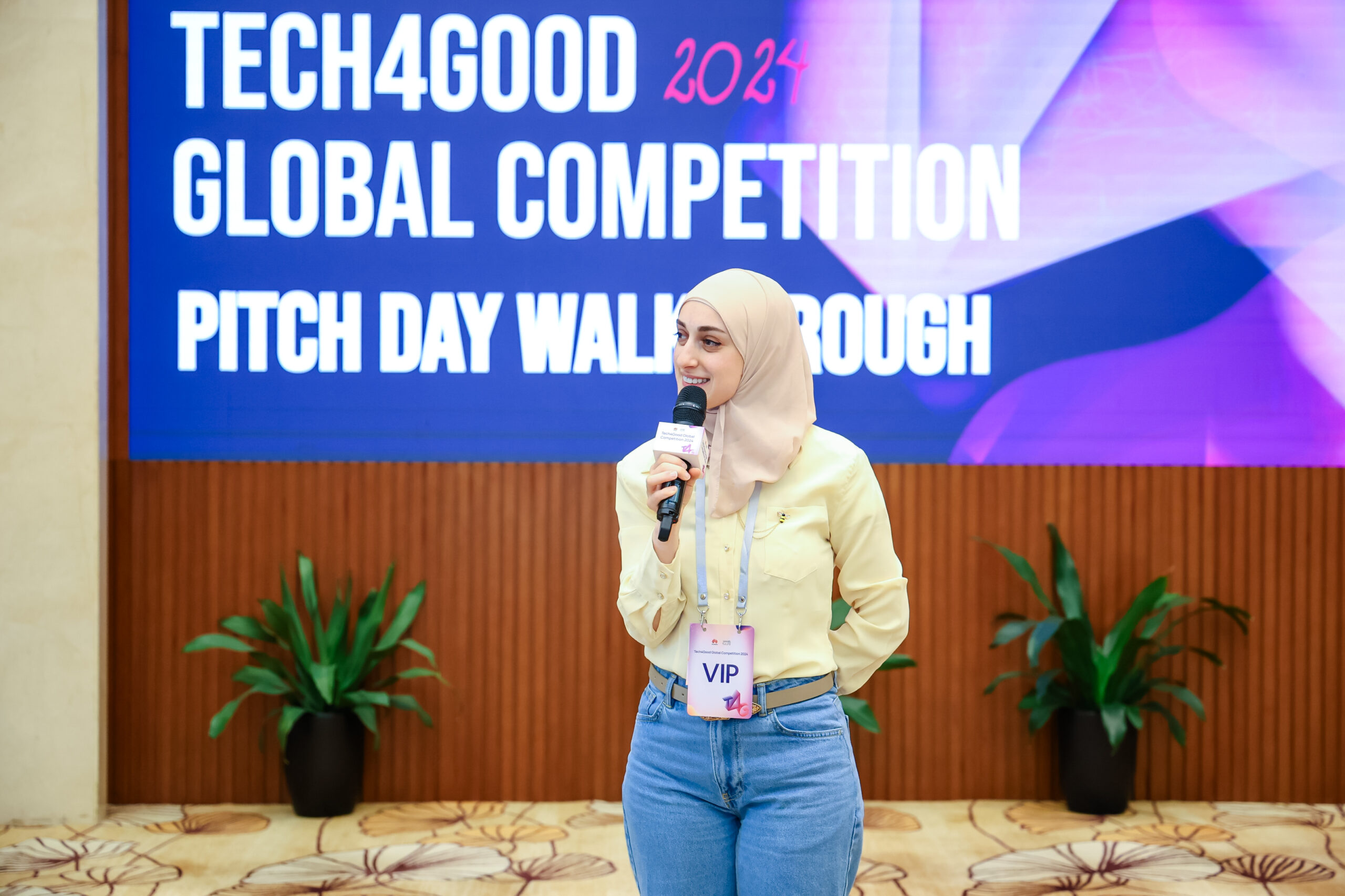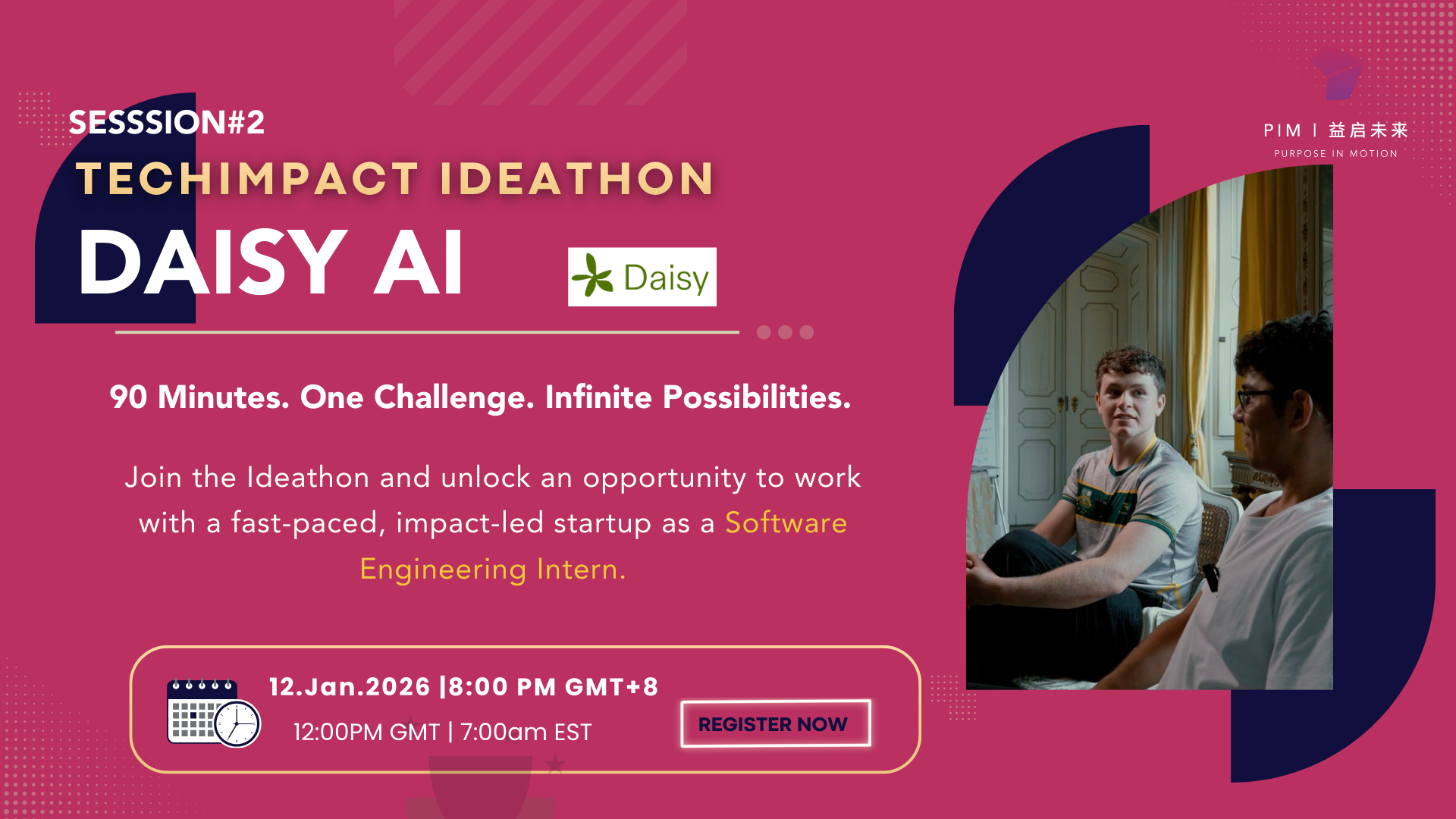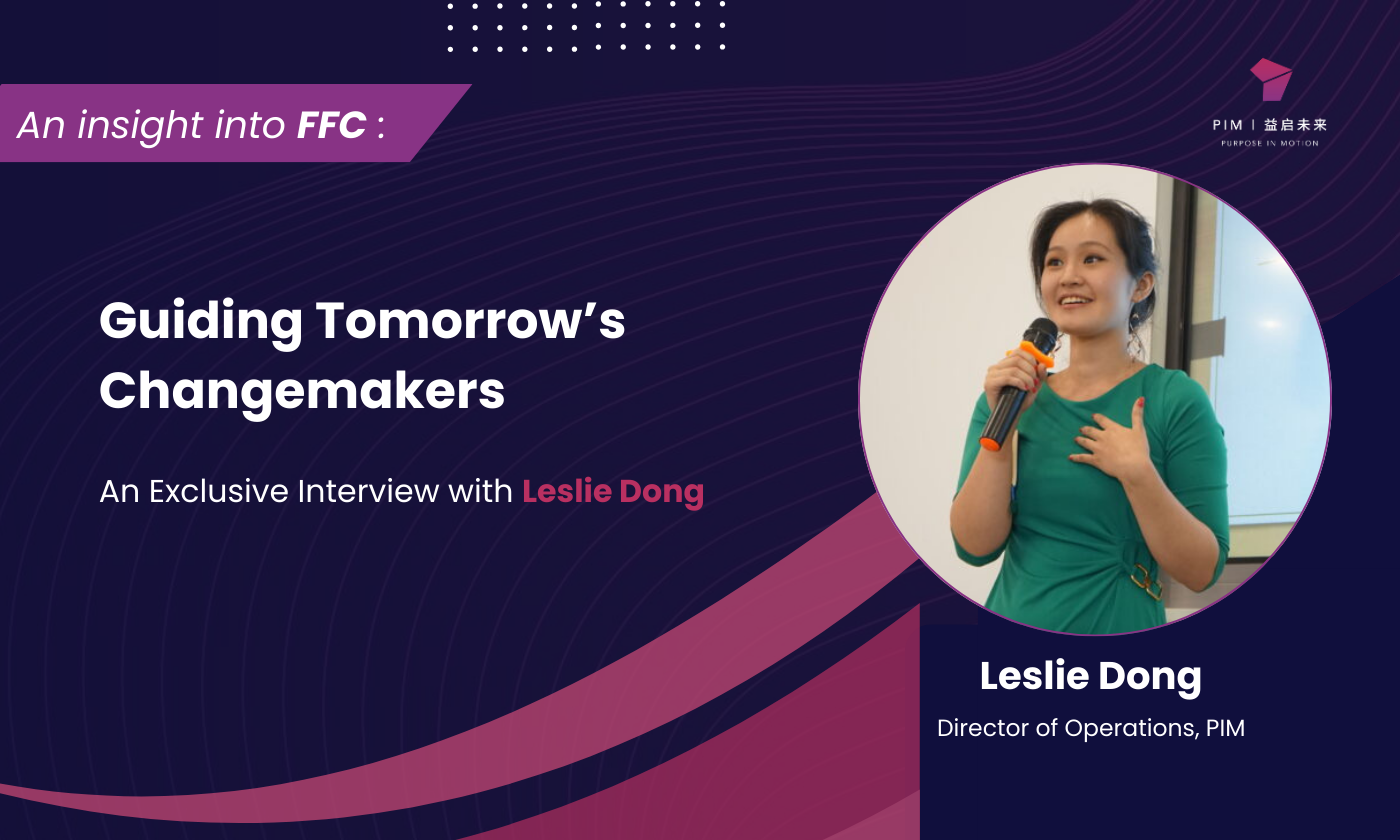What initially drew you to become a mentor for the Tech4Good program, and how has the experience aligned with your expectations?
Honestly, it all began by chance when I spotted the mentor recruitment call in a WhatsApp group—one of those rare moments when an unexpected opportunity truly resonates. From the moment I read the description, I was captivated. Words like entrepreneurship, innovation, and youth empowerment aren’t just buzzwords to me—they have shaped my academic journey from a Bachelor’s in International Business Administration to a Master’s in Strategy and Innovation, and have guided every step of my career. This passion ultimately led me to found my own consultancy, Warsha, where innovation, entrepreneurship, and social impact drive everything we do.
But beyond ticking every box professionally, this program touched something deeper—it spoke to my purpose. For over a decade, I’ve committed myself to empowering young people, especially those from marginalized or underrepresented backgrounds, to dream with courage and build ventures that matter. Back in Syria, I saw firsthand how even the most fragile ideas could spark real change—when young minds are trusted, supported, and given the space to lead.
That’s why this program felt like more than just another opportunity. It felt like home. The diversity of its participants—from East Asia to Sub-Saharan Africa, the Middle East to Europe—created an extraordinary mix of voices, ideas, and perspectives. It became a living classroom, not just for the mentees, but for me too.
At its core, this experience resonates with who I am: someone who believes that knowledge grows only when it’s shared. Mentoring here isn’t just a task—it’s an extension of what I love most. Supporting these ambitious young people isn’t just impactful—it’s deeply personal. It reminds me, every time, why I do what I do.
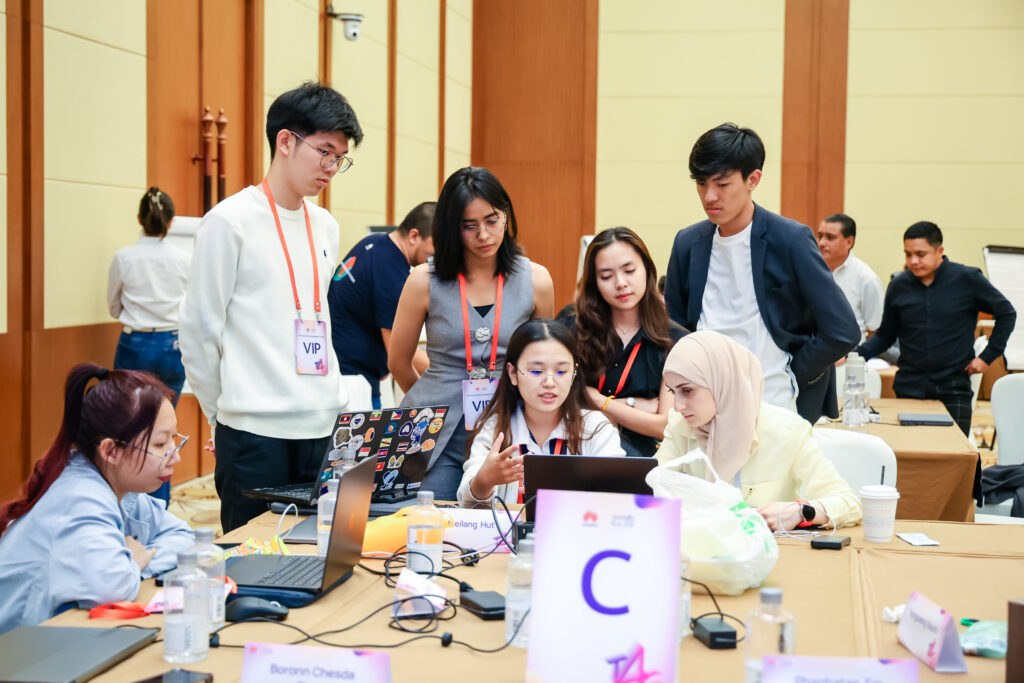
What technical or soft skill did you see develop most dramatically among the students throughout the competition process?
Students often enter the program with ideas rooted in personal experiences and the challenges they see around them. But the real transformation begins when they shift from individual perspectives to a collective journey—where diverse talents, voices, and worldviews come together to create something greater.
One of the first and most critical soft skills they develop is active listening. They learn how to step back, really hear one another, and build upon each other’s ideas instead of working in silos. Through that, they begin to understand something even deeper—empathy. I often encourage the teams I mentor to leave behind assumptions and instead talk to real people. Ask questions. Listen to how others describe the problem in their own words.
That shift—from projecting a solution to understanding the need—is powerful. It’s where real innovation begins.
On the technical side, the students move far beyond the boundaries of academic research. They learn how to adapt their research methods to real-world dynamics—conducting field interviews, focus group discussions, and expert consultations, often in fast-paced or unfamiliar settings. They discover how to extract meaningful insights even when the process is unstructured. And importantly, they learn to design for impact—creating solutions that are not just technically impressive, but truly needed by the communities they aim to serve.
What I love most is seeing this evolution. Watching students move from purely analytical mindsets to becoming empathetic, human-centered innovators is incredibly rewarding. It’s where confidence meets compassion—and that’s where the magic of this program lies.
How do you see programs like Tech4Good shaping the future of technology innovation and social impact?
Programs like Tech4Good are no longer a nice-to-have—they’re a necessity. In a world facing urgent and complex challenges, we need more than just brilliant ideas; we need purpose-driven innovation. What makes Tech4Good so powerful is that it equips young people with both the mindset and the tools to channel technology toward meaningful change.
What inspires me most is that I’ve witnessed firsthand how the most impactful ideas often come from those who have lived the problem—or have taken the time to deeply listen to those who have. These individuals don’t just analyze issues; they understand the pain points intimately, which allows them to develop solutions that are not only technologically advanced but also accessible, context-sensitive, and truly effective. One of the moments I’m most proud of in my three years with Huawei was when a team from Ethiopia won first place in April 2025. In a country where farming and livestock make up 80% of the economy, this team designed a solution rooted in empathy and local knowledge. They didn’t just design for innovation—they designed for impact.
That’s what makes Tech4Good so powerful: it equips young innovators with tools that are not only globally relevant but locally meaningful.
Ultimately, Tech4Good reframes technology—not as an end, but as a means. A means to build bridges between people, close inequality gaps, and solve real human problems. As someone who has mentored in this space for years, I can say with confidence: programs like Tech4Good are not just shaping the future—they are redefining it.
What was your approach to helping teams validate their market assumptions and refine their business models?
I often take on the role of the challenger—the friendly skeptic who asks the hard questions nobody else dares to ask. At first, this can feel like walking into a storm for the teams, especially when we’re still getting to know each other. But my intention is always clear: I want them to sharpen their ideas by putting them through rigorous, honest scrutiny. Think of it as a rehearsal before the real performance. If their solution can stand firm under this pressure, it’s a sign it’s ready to thrive in the real world.
Central to my approach is the spirit of design thinking—start with curiosity, dive deep into the problem, and never fear iteration. I urge teams to treat every challenge as a stepping stone, to build, test, learn, and pivot boldly when the data calls for it. Pivoting isn’t failure; it’s the art of learning in motion. Yet, alongside this, I remind them to stay grounded—ambitious in vision but realistic in execution.
I also encourage them to walk in different shoes—to see their ideas from the eyes of a user, an investor, or even a competitor. This dance of perspectives breaks the cage of assumptions and builds business models that are not only innovative but resilient, empathetic, and ready to make an impact.
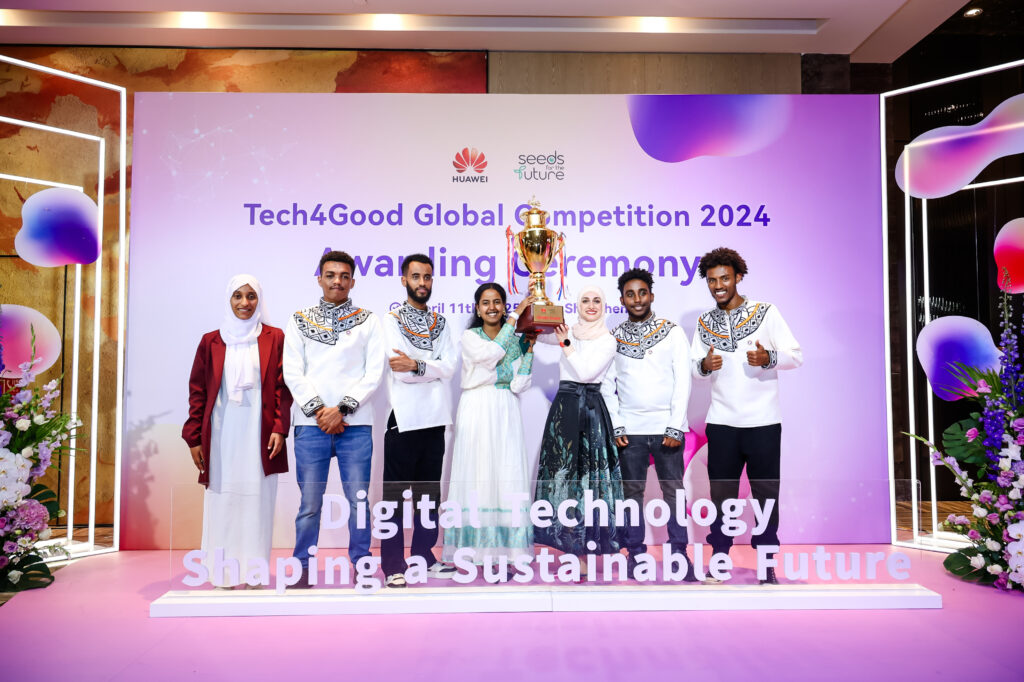
Looking ahead, what excites you most about the future of these “Seeds for the Future” as they continue their innovation journeys?
Innovation is never easy—it’s a roller coaster filled with challenges: time management, project execution, balancing ambition with realism, securing funding, and maintaining personal well-being. What excites me most is seeing these young entrepreneurs embrace this journey and grow not just professionally but personally. The experience they gain through the program goes far beyond what traditional education offers.
I’ve seen how teams who continue working on their solutions months after the program shift their perspectives—not only about their projects but about their place in the world and their deeper purpose. Some of these innovations become true assets to society, making a lasting impact.
One particularly inspiring example is a team from Ireland whom I had the privilege to mentor during the EU regional competition in Italy in 2024. They not only went on to secure the Bronze Award and People’s Choice Award in the Tech4Good global competition but are now also competing for the prestigious Hult Prize—an outstanding achievement that highlights the exceptional talent and dedication fostered by this program.
It’s always a pleasure to hear from teams months or even years later, seeking further guidance or brainstorming new ideas. These moments remind me of the real, lasting value we’re building together and fuel my belief in the incredible potential of these young innovators to shape a better future.
Meet Our Mentor
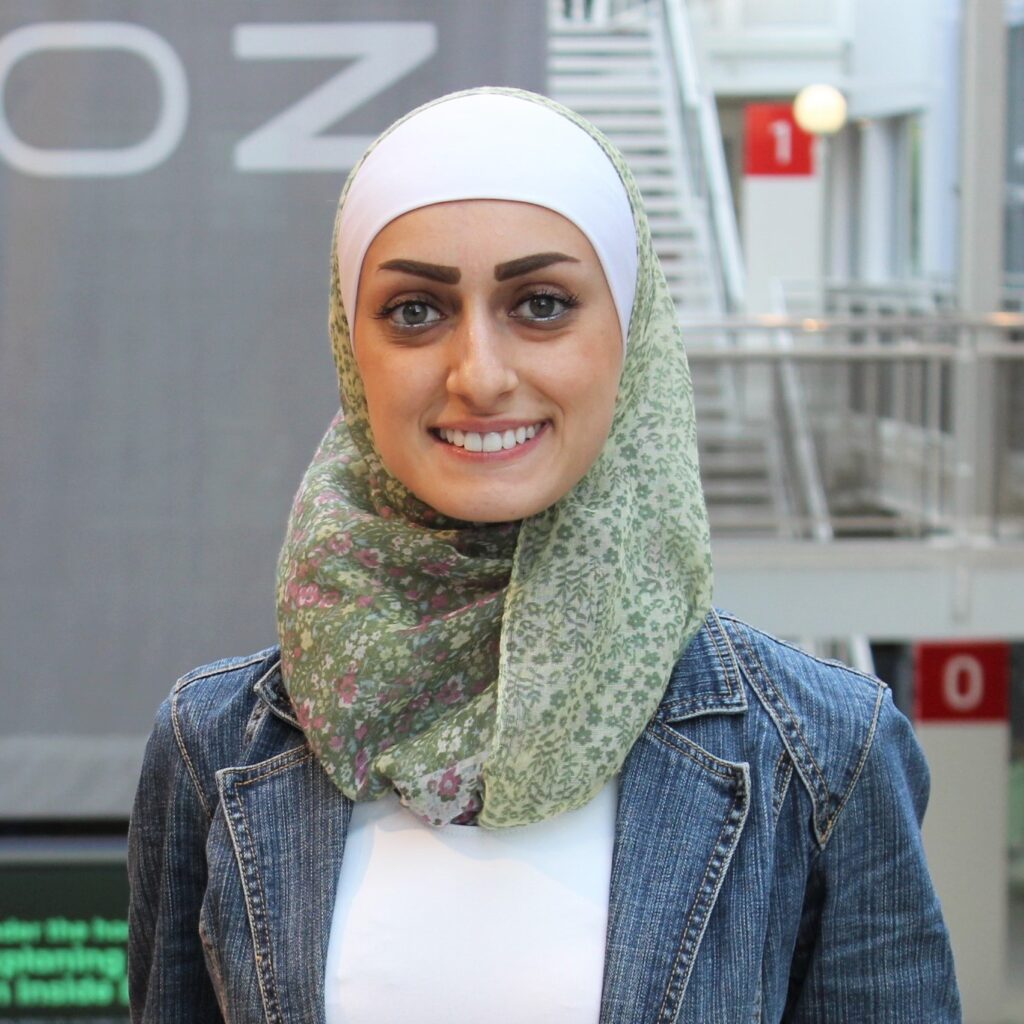
Salam Al-Nukta
Netherlands & Syria
Founder, Warsha
Mentor, PIM Tech4Good Program
“The diversity of its participants—from East Asia to Sub-Saharan Africa, the Middle East to Europe—created an extraordinary mix of voices, ideas, and perspectives. It became a living classroom, not just for the mentees, but for me too.”
LinkedIn: https://www.linkedin.com/in/salamnukta/
